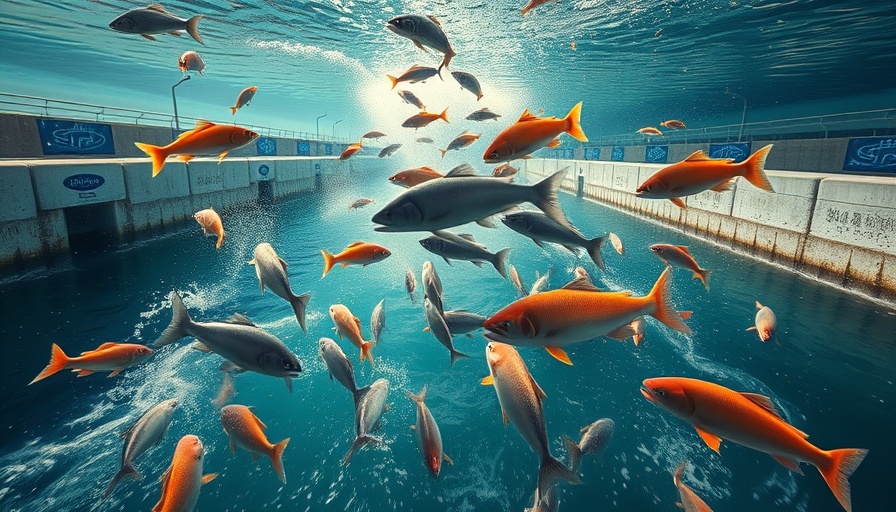
Understanding Water Quality's Crucial Role in Fish Welfare
The health of fish populations is intricately linked to water quality, a concern for professionals across the aquaculture sector. Factors like stocking density, temperature variations, and ammonia levels significantly influence fish well-being, necessitating continuous research and effective management practices.
New Insights on Cleaner Fish Resilience
Recent studies on lumpfish, particularly their reaction to high stocking densities and environmental changes, have yielded promising results. Researchers from the University of New Hampshire found that juvenile lumpfish are surprisingly resilient. Even subjected to densities of 90 g/L, which is significantly above current industry standards, these fish demonstrated survival without adverse effects on mortality rates. This opens new avenues for aquaculture practices, potentially allowing farmers to tailor lumpfish growth to better match operational needs without compromising animal welfare.
Optimizing Feed and Health: The Egyptian Perspective
Interestingly, maintaining static water conditions can come with trade-offs. A study from Egypt highlights how unchanged water can lead to growth retardation in Nile tilapia. Researchers found that incorporating dietary lactic acid can mitigate these negative impacts, suggesting that strategic interventions can enhance both fish health and operational efficiency. This illustrates the necessity of balancing water quality with economic considerations, especially for poultry industry managers seeking cost-effective solutions.
Future Directions for Water Management in Aquaculture
To address the ongoing challenges of water quality, proactive management is vital. Enhancing fish welfare through better water management strategies will not only promote healthier populations but can potentially reduce operational costs in the long run. As such, it will be essential for aquaculture stakeholders to stay informed on the latest research findings and implement practices that prioritize both efficiency and animal welfare.
Up-to-date knowledge and innovative strategies can set industry standards for fish welfare and sustainability. Industry professionals are encouraged to share findings and collaborate on solutions that enhance the quality of water while supporting fish health. Take initiative to explore research opportunities and apply them on your farms to ensure a prosperous aquaculture future.
 Add Row
Add Row  Add Element
Add Element 



 Add Row
Add Row  Add
Add 
Write A Comment